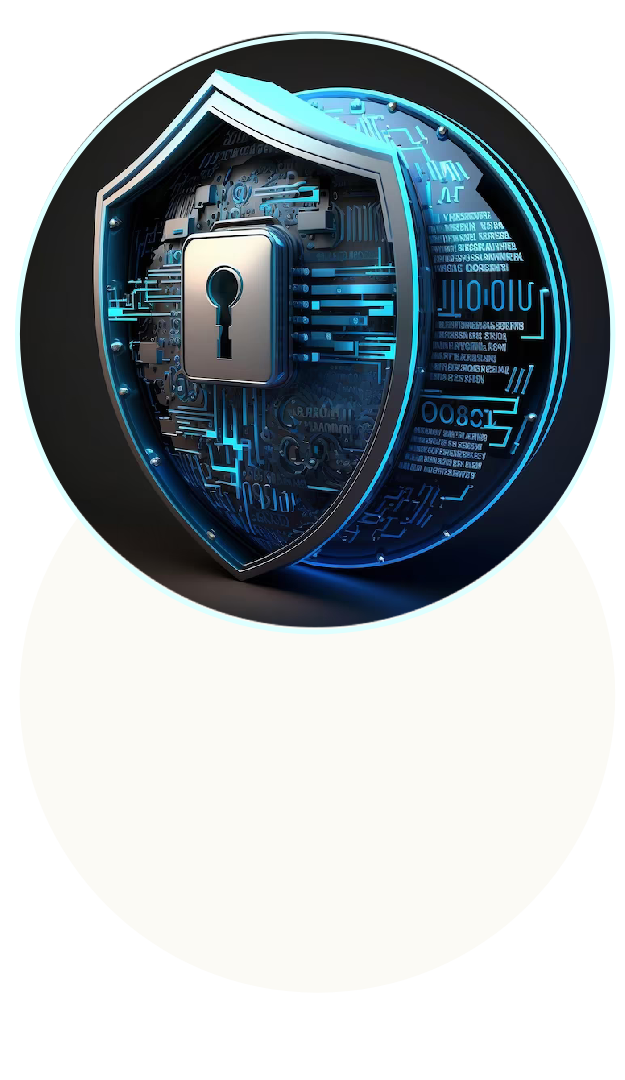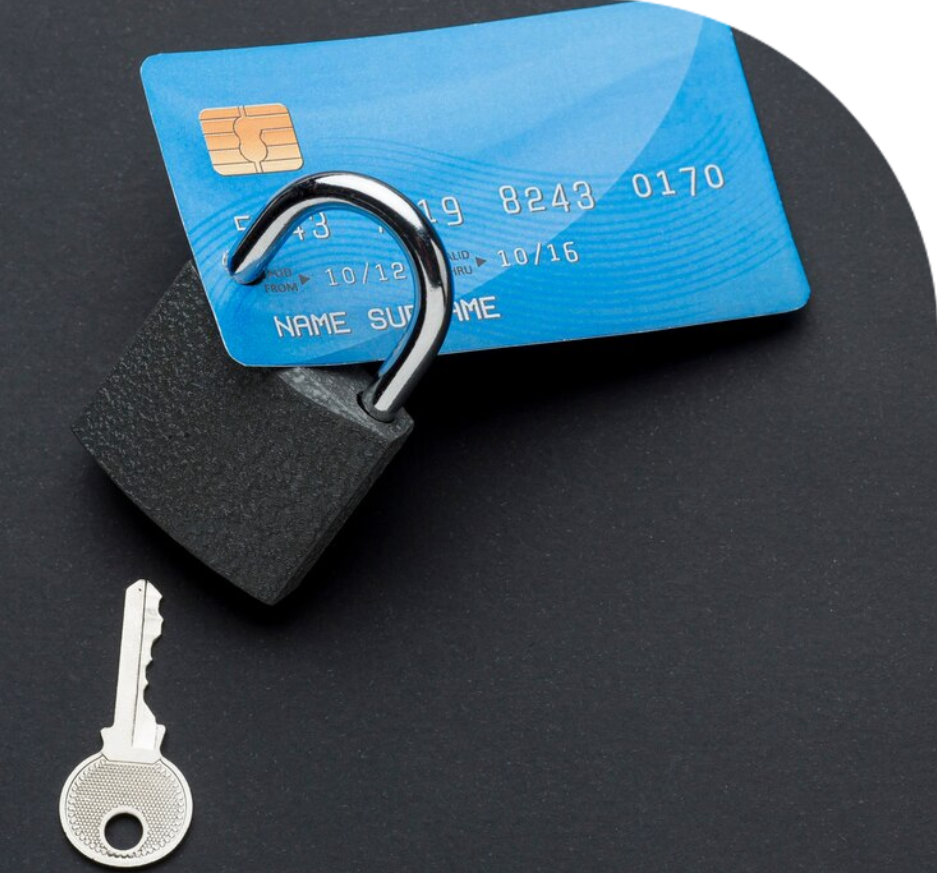General Safety Information
Important Tips
-
In an era of advancing technology, it is crucial to stay informed about general safety practices to protect your financial assets. Always ensure the confidentiality of your personal identification numbers (PINs) and passwords, and refrain from sharing them with anyone. Be vigilant against phishing attempts, never disclosing sensitive information via unsolicited emails or calls. Regularly monitor your account statements and report any suspicious activity promptly to your bank. Utilize secure online banking platforms, updating your login credentials regularly.
-
Do not keep your account in-operative for a long time. Keep cheque books / credit cards in a secured place. Never keep blank / signed cheques in the drawer or any place where outsiders have an easy access. Never etch or scribble your credit/ATM card passwords on any document.


- If the Automatic Teller Machine (ATM) retains your card, it is possible that a criminal may have rigged the machine so that he/she will retrieve your card after you leave.
- Phone your bank immediately to cancel the card.
- Beware of too friendly helpers.
- Never allow anyone to assist you at an ATM.
- Thieves are often well dressed and very friendly.
Tips to make your transactions safer
When using the ATM:
- Be aware of your surroundings before entering an ATM area. If there are any suspicious persons around, leave and come back later or go to another location.
- Avoid being in the same booth with others; or having others hovering around.
- If there is someone else around, stand over the machine when inputting your Personal Identification Number (PIN) and try to shield the keypad with your other hand or your body, so that the PIN cannot be identified.
- Never key in your PIN while someone is standing close to you especially if he or she is using a cell phone. The cell phone may have the capability of taking a photo of your PIN while you are executing your transaction.
- Find out from the bank exactly what the full risk is to you, if you should lose your card or forget your PIN.
- Keep your card with you at all times and in a safe place and report the loss of your card as soon as you become aware of the loss.
- In most cases, if you report the loss of your card within 48 hours, followed by confirmation in writing within fourteen days if done orally, you should not be liable to any loss.
- Ideally, you should memorize your PIN. Do not write it down.
- But if you must write your PIN down, keep your PIN where no one else can find it and separate from your card.
- Disguise your PIN well. Do not select numbers or letters that others can guess, for example, your birth date or phone number.
- Do not give your PIN to any one.
- If you are suspicious that someone may have knowledge of your PIN, go to the bank and have it changed.
- Keep the receipts of transactions done at the ATM and compare them to your next bank statement.
- Never dispose of any receipts at the ATM booth, even if the transactions are VOID. They may contain confidential information which a criminal may use against you.
- Report any discrepancies in any ATM transactions shown in your account immediately after receipt of your statement.
Protecting Yourself From Cheque Fraud.
When Using Cheques:
Cheques are a familiar way to pay everyday expenses. However, they can be compromised if you aren't careful, so it's important to keep your cheques safe.
Secure Your Cheques
- Make sure that you keep your cheque book in a safe and secure place.
Crossed Cheques
- Mark cheques “Not negotiable” or “& Co” where possible, writing this boldly across the face of the cheque.
- Crossed cheques, that is, marked “Not negotiable” or “& Co”, may not be cashed but may be endorsed in favour of a third party at the risk of the third party.
- In order to receive cash on a cheque, it must not be crossed. If it is, it can be uncrossed and initialed by the party (ies) who signed the cheque.
When Writing Cheques
- Begin writing the name of the payee and the amount to be paid close to the left hand margin to prevent alterations.
Use indelible ink when writing cheques. - Any alteration on a cheque must be initialed by the person(s) signing the cheque.
Ensure Cheques Are Covered
- Always ensure that you have sufficient funds in your account to cover cheques. Significant bank charges are levied by the bank in processing cheques which have to be returned because of insufficient funds.
- It is illegal to issue a cheque when you do not have sufficient funds in your account to clear the cheque.
- You may be sentenced to imprisonment.

- Report the loss of your card as soon as it has come to your attention.
- If an oral report is made, follow up with a written confirmation within fourteen days, you may not be liable for any losses.
Protecting yourself from credit card fraud.
When using your credit card:
In general, credit cards offer better fraud protection. If someone skims your credit card information, for example, you have time to dispute the charge before you’re liable for the payment and the pending charge may never even post to your account.
- Keep your credit card with you at all times.
- Always keep an eye on your credit card and never let it out of your sight.
- Try not to allow your card to be taken away from your sight for your bill to be made. If practicable, go with your card to the cashier.
- After making a purchase, be sure that your credit card and receipt are returned to you.
- Constantly check to see that your card is in your possession.
- Be sure to secure all slips for the items transacted and verify them against your monthly statement promptly after receipt of your statement.
- Keep receipts of any “null and void” transactions and compare them to your next statement to ensure they are not charged to your account.
- Report any discrepancies immediately.
- In most cases, if reported within 30 days, any unauthorized debits should be reversed.
- Be aware however, that the credit card company cannot be held accountable for any faulty merchandise or unsatisfactory service transaction. Such complaints must be taken up with the merchant or provider.
- Never disclose your account number or other personal information over the telephone, email or internet, unless you initiated the contact and you are positive that you are dealing with a legitimate business.
When checking Your Bank Statements:
Most bank statements should be kept accessible in hard copy or electronic form for one year, after which they can be shredded.
Be Prompt:
Check your bank statements promptly.
Be Careful:
It is very important that you check your bank statements carefully as soon as they are received.
Be Watchful:
Reconcile the balance in your bank statement with your banking record and query any differences immediately.

